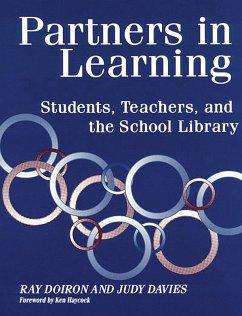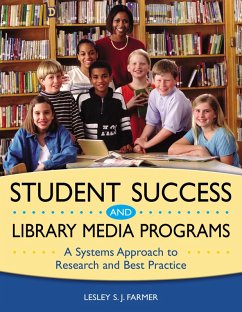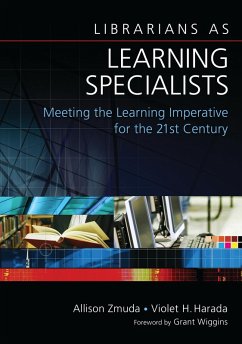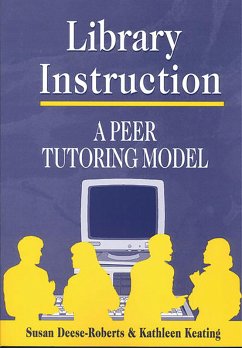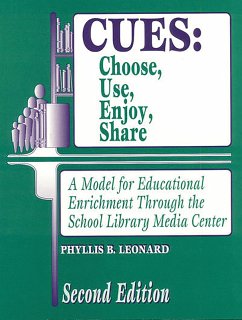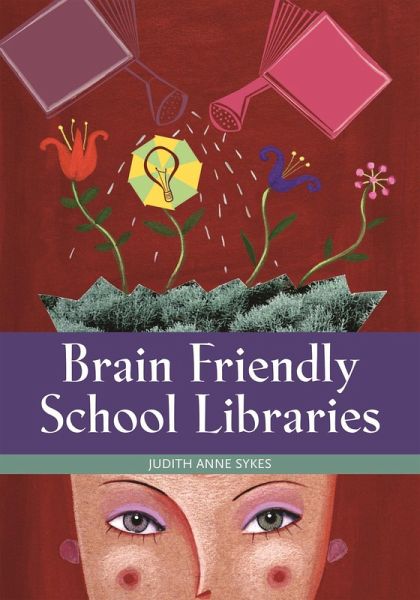
Brain Friendly School Libraries (eBook, PDF)

PAYBACK Punkte
13 °P sammeln!
This title gives concrete practical examples of how to align school library programs and instructional practice with the six key concepts of brain-compatible learning: increasing input to the brain; increasing experiential data; multiple source feedback; reducing threat; involving students in learning decision making; and interdisciplinary unit planning. This title, Brain Friendly School Libraries, gives concrete practical examples of how to align school library programs and instructional practice with the six key concepts of brain-compatible learning: increasing input to the brain; increasing...
This title gives concrete practical examples of how to align school library programs and instructional practice with the six key concepts of brain-compatible learning: increasing input to the brain; increasing experiential data; multiple source feedback; reducing threat; involving students in learning decision making; and interdisciplinary unit planning. This title, Brain Friendly School Libraries, gives concrete practical examples of how to align school library programs and instructional practice with the six key concepts of brain-compatible learning: increasing input to the brain; increasing experiential data; multiple source feedback; reducing threat; involving students in learning decision making; and interdisciplinary unit planning. It includes chapters that summarize the current brain research and current thinking about its implication for instructional practice in the school library media center as well as discusses the work of Ellen Langer (mindful learning), Geoffrey and Renette Caine, Bob Sylwester and other major proponents of teaching with the brain in mind.






